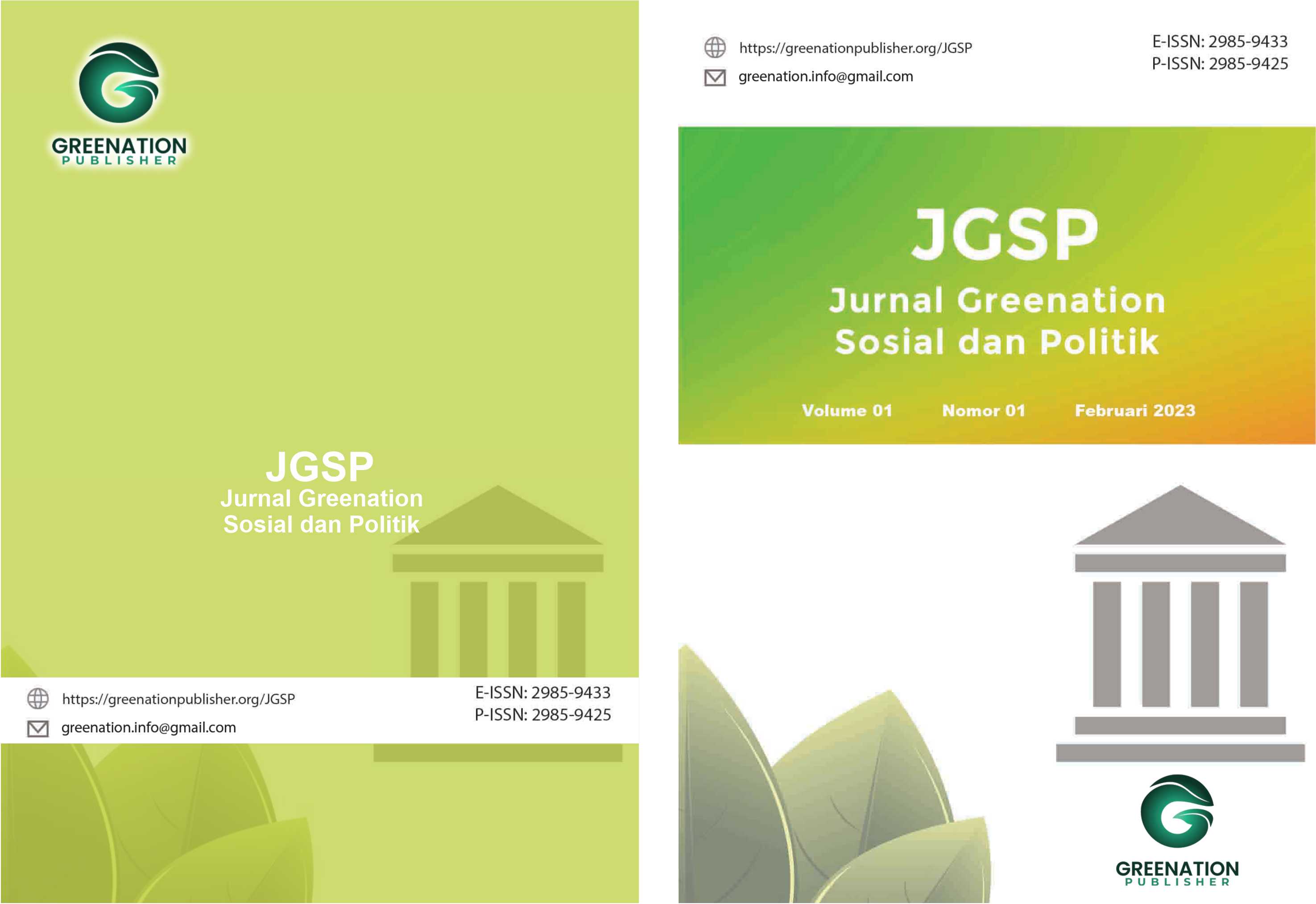The Urgency of Formulation of Responsive Criminal Law Policies to the Values of the Madura Carok Tradition in the Framework of Restorative Justice and Legal Pluralism in Indonesia
DOI:
https://doi.org/10.38035/jgsp.v3i3.426Keywords:
Carok, Restorative Justice, Legal Pluralism, Criminal Law, Local CultureAbstract
The tradition of carok in Madurese society is a practice of conflict resolution that is deeply rooted in the values of honor and self-respect. Although socio-culturally carok is understood as a form of defending one's dignity, this practice contradicts the national criminal justice system, which prioritizes the principles of legality and protection of the right to life. This disparity creates challenges in law enforcement, as the state often fails to accommodate local values in the formulation of criminal policies. This study aims to analyze the urgency of formulating criminal policies that are responsive to the values of the carok tradition, using restorative justice and legal pluralism as integrative solutions. The method used is normative jurisprudence with a legislative approach and the theories of legal pluralism and restorative justice. The analysis shows that the new Criminal Code (Law No. 1 of 2023) through Article 2 has recognized the existence of customary law, but it has not yet fully addressed sociocultural challenges such as carok. A reformulation of criminal policy is needed that not only emphasizes repressive aspects but also accommodates community-based resolutions through penal mediation and the role of customary leaders. With this approach, it is expected that reconciliation between state legal values and local wisdom will occur to create substantive justice rooted in the social reality of the community.
References
Afifah, N. N. (2024). Perbandingan Antara Pendekatan Keadilan Restoratif dan Pendekatan Hukuman Adat dalam Kasus Tindak Pidana Ringan. Syntax Idea, 6(6), 2804-2816.
Beremanda, L. P. (2023). Prinsip Keadilan Restoratif Dalam Penghentian Penuntutan Melalui Kompensasi dan Restitusi. PAMPAS: Journal of Criminal Law, 4(2), 277-287.
Chandra, T. Y. (2023). Penerapan Restorative Justice Dalam Sistem Peradilan Pidana Anak di Indonesia. Al-Mashlahah Jurnal Hukum Islam Dan Pranata Sosial, 11(01), 61-78.
Damanik, D. &. (2024). SISTEM HUKUM NASIONAL INDONESIA. Jurnal Pendidikan Ilmiah Transformatif, 8(12), 312-318.
Dartiningsih, B. E. (2022). Budaya dan Masyarakat Madura. Indramayu: CV. Adanu Abimata.
Firdaus, S. P. (2021). Menilik Budaya Carok pada Masyarakat Madura dalam Sistem Hukum Adat di Indonesia. Jurnal Hukum Lex Generalis, 2(3), 236-248.
Hendrawan, F. (2024). QUO VADIS EKSISTENSI PENERAPAN HUKUM ADAT DALAM HUKUM NASIONAL. Prosiding Mewujudkan Sistem Hukum Nasional Berbasis Pancasila, 1, 83-93.
Irawan, M. D. (2025). PROSES PERBUATAN HUKUM ADAT SEBAGAI SUMBER HUKUM DALAM MEMBANGUN SISTEM HUKUM INDONESIA. JURNAL RECTUM: Tinjauan Yuridis Penanganan Tindak Pidana, 7(1), 64-70.
Mariane, I. (2024). Pengaruh Filsafat Nusantara Dalam Perkembangan Teori Hukum di Indonesia. Jurnal Ilmu Hukum, Humaniora dan Politik (JIHHP), 5(1).
Mawaidi, M. &. (2021). Islam dan Paradoks (Budaya) Carok di Madura: Tinjauan Ontologi, Epistemologi, dan Aksiologi. Jurnal Tamaddun: Jurnal Sejarah Dan Kebudayaan Islam, 9(2), 673-692.
Mufidah, M. M. (2022). Peradilan Adat Sebagai Kerangka Restorative Justice Dalam Penyelesaian Perkara Pidana Di Indonesia. Mizan: Journal of Islamic Law, 6(2), 227-244.
Mutmainnah, M. (2023). PENANGGULANGAN TINDAK PIDANA PEMBUNUHAN DENGAN CARA CAROK PADA MASYARAKAT MADURA (Studi Di Polsek Kec. Tanjungbumi Kab. Bangkalan). Dinamika, 29(2), 8589-8604.
Razy, M. R. (2024). Budaya Carok Dalam Perspektif Lanskap Alam Pulau Madura: Sebuah Pendekatan Ekologi Sejarah. Jurnal Adat dan Budaya Indonesia, 6(2), 227-235.
Robekha, J. P. (2024). Pengaruh Budaya Lokal Terhadap Pelaksanaan Hukum Pidana Di Indonesia. HUMANIORUM, 2(1), 66-71.
Sugitanata, A. &. (2023). Analisis Maslahah dalam Membangun Harmonisasi Pluralisme Hukum pada Masyarakat Majemuk. Al-Muqaronah: Jurnal Perbandingan Mazhab dan Hukum, 2(2), 69-77.
Sukmana, S. S. (2024). ESSENSI PLURALISME HUKUM INTERNASIONAL DALAM PERSPEKTIF SISTEM HUKUM DUNIA. PALAR (Pakuan Law review), 10(3), 40-55.
Syaputra, M. I. (2024). Budaya Carok Masyarakat Madura dalam Perspektif Hukum Pidana Islam. Legalite: Jurnal Perundang Undangan dan Hukum Pidana Islam, 9(2), 202-218.
Tanzillah, E. N. (2021). Tinjauan Yuridis Sosiologis Atas Tindak Pidana Budaya Carok Berdasarkan Pasal 340 KUHP. Pagaruyuang Law Journal, 5(1), 1-17.
Yustiana, I. (2024). REVITALISASI HUKUM ADAT DALAM HUKUM NASIONAL: MEMBANGUN KEADILAN BERBASIS KEARIFAN LOKAL. Prosiding Mewujudkan Sistem Hukum Nasional Berbasis Pancasila, 1, 309-318.
Zaman, A. A. (2023). Tradisi Carok dalam perspektif kriminologi dan sistem pidana di Indonesia. Jurnal Ilmiah Wahana Pendidikan, 9(24), 9-17.
Downloads
Published
How to Cite
Issue
Section
License
Copyright (c) 2025 Reny Arafah, Purwadi Wahyu Anggoro, Joko Setiono

This work is licensed under a Creative Commons Attribution 4.0 International License.
Hak cipta :
Penulis yang mempublikasikan manuskripnya di jurnal ini menyetujui ketentuan berikut:
- Hak cipta pada setiap artikel adalah milik penulis.
- Penulis mengakui bahwa Jurnal Greenation Sosial dan Politik (JGSP) berhak menjadi yang pertama menerbitkan dengan lisensi Creative Commons Attribution 4.0 International (Attribution 4.0 International CC BY 4.0) .
- Penulis dapat mengirimkan artikel secara terpisah, mengatur distribusi non-eksklusif manuskrip yang telah diterbitkan dalam jurnal ini ke versi lain (misalnya, dikirim ke repositori institusi penulis, publikasi ke dalam buku, dll.), dengan mengakui bahwa manuskrip telah diterbitkan pertama kali di JGSP.
























